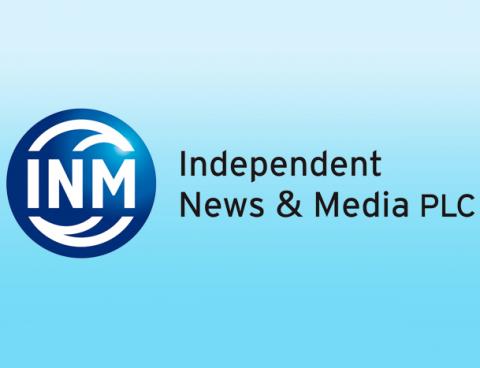Rabbitte's media ownership plan is too little too late

Pat Rabbitte has indicated that Denis O'Brien will be stopped in his tracks if he attempts to expand his media empire here, but INM already controls far too much of the Irish media. By Vincent Browne.
Pat Rabbitte has offered interesting insights into the present Government’s plans for new legislation on media ownership, expressing concern for the concentration of ownership across media sectors.
The target was Denis O’Brien and/or anybody aiming for as much media control as he has acquired or as he hopes to acquire. And before I go further I must declare several interests.
I have known Denis O’Brien since 1982 when he was personal assistant to the late Tony Ryan, with whom I helped to revive the Sunday Tribune in 1983. I have retained an acquaintance with and a liking for Denis O’Brien.
It was he who brought me into broadcasting in 1996. I work for TV3, a rival of RTÉ, about which I have some observations – however, I expressed very similar observations about RTÉ while I worked for that organisation from 1996 to 2007. I write for two newspapers, The Irish Times and the Sunday Business Post.
O’Brien is now the largest shareholder in the second largest media organisation in the State, Independent News and Media (IN&M). He does not yet control that corporation but, surely, must soon do so. IN&M owns the Irish Independent, the Sunday Independent, the Evening Herald, the Irish Daily Star, along with 14 provincial newspapers, two free newspapers and a magazine. It controlled the Sunday Tribune from 1991 until earlier this year when it closed it.
In addition, it owns the Belfast Telegraph and Sunday Life . IN&M is also the largest newspaper publishing group in South Africa and has substantial ownership of media organisations in Australia, New Zealand and India.
O’Brien controls, through his company, Communicorp, several radio stations, including Newstalk, Dublin 98, Spin 1038 and Spin South West, (he also controls, through Communicorp, 38 other radio stations in 8 countries across Europe).
In other words, O’Brien is a huge presence in the Irish media scene and exerts and will exert editorial control over a large sector of the Irish media.
In his speech to the NUJ delegate conference at Croke Park on Saturday last, Rabbitte, who has ministerial responsibility for the media arena, expressed concern “that an excessive concentration of media ownership and control involves risks that go beyond those involved in the case of ordinary goods and services”.
He said the Government was intending to “legislate” for “new, media-specific and principles-based criteria to be applied when assessing any future proposed [media] merger”.
Incidentally, governments supposedly don’t legislate, for that is the function of parliament but, given our dysfunctional system, effectively it is the government that legislates as well as holding itself accountable.
In that connection he said this could include “the undesirability of allowing any one individual or undertaking to hold significant interests within a sector or across different sectors of media businesses”.
In other words, O’Brien will be stopped in his tracks if he attempts to expand his media empire here. But is that enough? Doesn’t INM itself control far too much and shouldn’t there be legislation requiring the break-up of its already excessive presence in the Irish media market? That is aside altogether from O’Brien’s radio possessions.
But, also, isn’t there a concern that anybody with extensive business interests generally, as O’Brien has via several other enterprises across a range of activities will avoid legitimate media scrutiny if he/she controls much of the media?
All the more so since he has been the subject of very serious findings by a tribunal of inquiry here in Ireland concerning his business dealings?
Indeed should not the findings of that tribunal be sufficient to disbar him from any significant media control here?
Rabbitte seems to envisage no criteria on media ownership that would encompass such considerations.
There is another issue to do with the media here which is hardly ever addressed, and it has to do with the massive presence of RTÉ, which controls two television channels, three radio stations aside from a plethora of digital stations, and enjoys a massive public subsidy via the licence fee – in the region of €1 billion since 2004. There is the further factor that as the only broadcast station for nearly 70 years, RTÉ is the beneficiary of a massive “heritage” bonus – an inbuilt huge advantage from having been there for so long.
These factors combine to make it very difficult for other radio and television stations to survive and frustrate the plurality of media which Rabbitte said he and the Government wish to promote. And it is not just the broadcast media that RTÉ blights but right across the print and now the internet media as well, with its subsidised website squeezing out non-subsidised competitors.
There is a solution: break up RTÉ, close down its subsidised website, sell off two of the radio stations and the second of its television channels. Then spread the licence fee subsidy fairly across the media spectrum, not just broadcast but print and internet sectors as well. And prohibit anybody or any corporation controlling directly or indirectly any media outlet that crosses an agreed readership/ viewership/listenership threshold.
